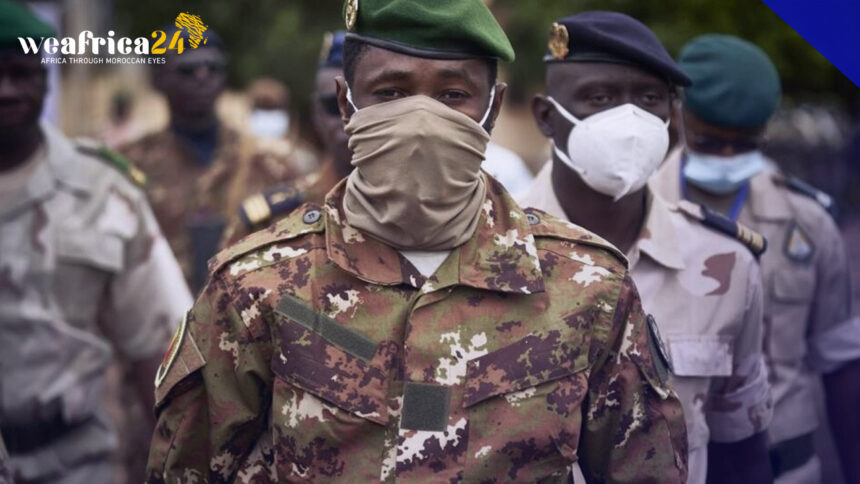The transition period in Mali, initiated with the military coup in August 2020 and subsequently extended twice, officially ended two days ago on Tuesday, March 26th. This was the date set two years ago by a presidential decree signed by Colonel Assimi Goïta himself.
However, since then, the presidential election scheduled for last month has been postponed once again, with no new date set. The Malian transitional authorities have not addressed this exceptional situation and remain firmly in place. However, Malian political parties, not just those in opposition, are now calling them out one after another.
The Action Synergy for Mali expresses concern over the “legal void” in which the country now finds itself. This coalition of political parties and civil society organizations from the opposition is therefore once again, and unsurprisingly, calling for “the establishment of a civilian transition” and urging “the nation’s stakeholders” to “join this struggle to save the endangered homeland.” Synergy’s activities were banned by the Bamako governor earlier this week, officially citing security reasons.
The Yelema party of former Prime Minister Moussa Mara, usually much less critical, is joining forces with the M5-RFP-Mali-Kura – former allies of transitional Prime Minister Choguel Maïga who have now split. Together, they argue that “the transition cannot be prolonged by force” and recommend “redefining the scope and objectives and identifying the actors of a new, short transition.” They too call on “the Malian people to come together to defend the principles of democracy.”
The RPM of former President Ibrahim Boubacar Keita urges the transitional authorities to act “responsibly” and to “respect the commitments made before the national and international community.” The RPM suggests urgently establishing “a new transitional mechanism” for a maximum period of six months.
Democratic Backpedaling
The Adema urges the transitional authorities “not to allow the legal void to persist” and demands a new “consensual” electoral calendar for a return to constitutional order “within a reasonable timeframe.” Mali’s oldest party, usually less vocal, denounces “the prolonged silence of the transitional authorities,” who, six months after announcing a “slight delay,” have indeed not set any new date for the presidential election. According to Adema, this “does not contribute at all to easing the socio-political climate.”
The PDES, party of the heirs of former President Amadou Toumani Touré, “urges the highest authorities to break the silence and work for a swift return to normal constitutional order.” The PDES “expresses deep concerns” about the “lack of clarity” regarding “the current trajectory of the Transition,” and notes with bitterness the “democratic backpedaling” and “political and economic regression of the country.”
Lastly, the Parena of Tiébilé Dramé calls for “consensually setting a timeline for the return to constitutional order through free, transparent, and credible elections.” The party of the white ram also advocates for the release of political prisoners, the return of political exiles, an end to the dissolution of associations and political parties, and the cessation of arrests for opinion-related offenses.
Two days after the official end of the transition period, authorities in Bamako remain completely silent on the matter. However, in a message shared on social media on Wednesday, Colonel Assimi Goïta stated that he had a telephone conversation with Russian President Vladimir Putin, during which the two leaders decided to “cooperate further in the fight against terrorism.”







